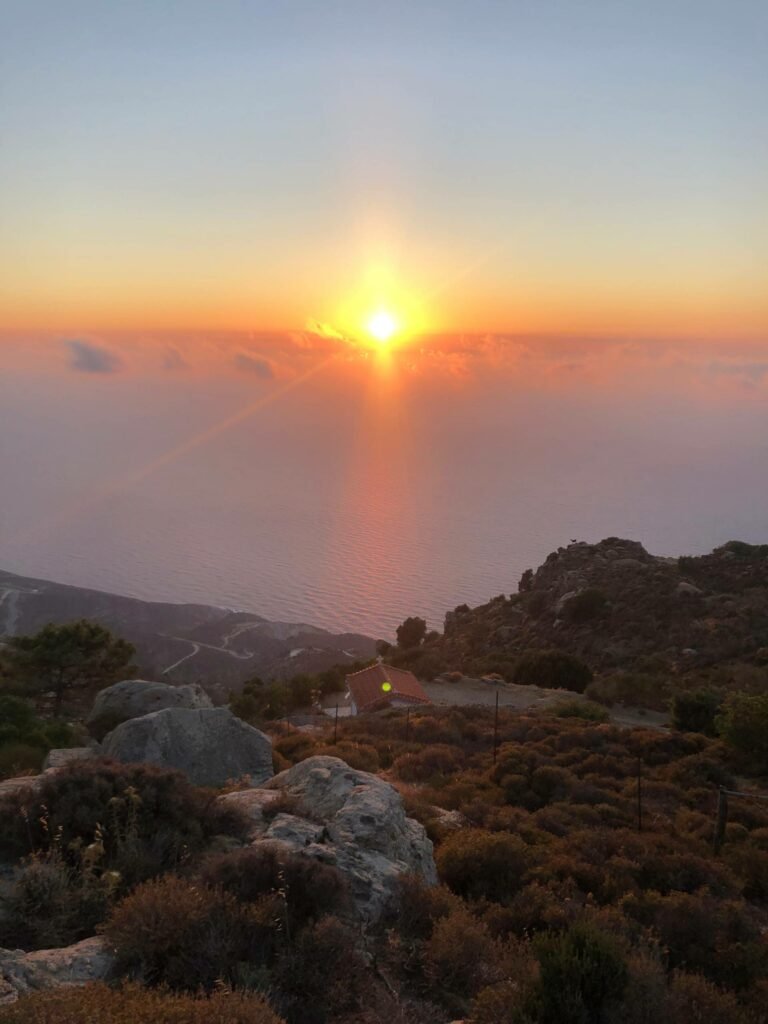Rock of Icarus
Arising slyly from the sea in the southern tip of Ikaria, the Rock of Icarus batters the constant remembrance of its namesake into the water. Jutting up near the beach of Vaoni, this mythical landmark is a living record of one of the most infamous legends in human history and a cultural landmark for the island. This humble rock perpetuates the living lore of Ikaria, uniting myth with reality, history with modernity, and continually resurrecting the epithet of the island.
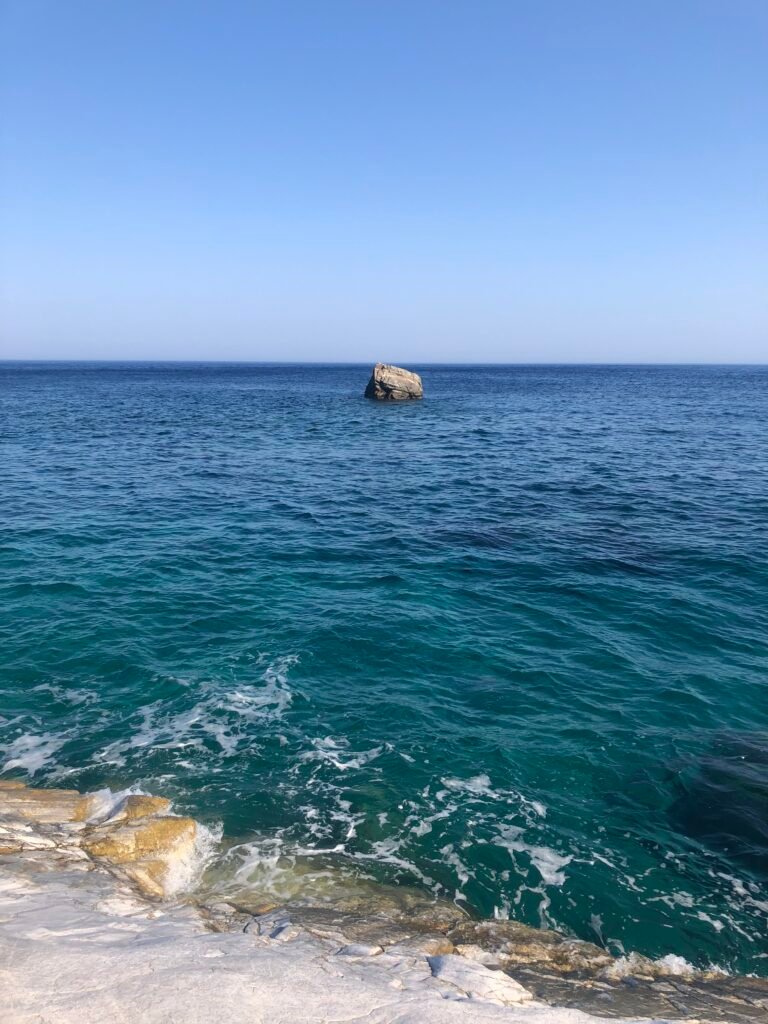
The rock is named after the famed Icarus, son of the architect Daedalus. Daedalus was hired by King Minos of Crete to construct the labyrinth that imprisoned the Minotaur, the blasphemous offspring of Minos’ wife Pasiphae and the beautiful white bull sent to Minos by Poseidon. Minos, fearful Daedalus would reveal the blueprint of the labyrinth and the true parentage of the Minotaur, imprisoned him and his son Icarus in a high tower. A genius inventor, Daedalus fashioned wings for him and his son with feathers, leather straps, and bees wax. Before flying from the window, he warned Icarus not to fly too close to the water, in fear of getting his wings wet, and not to fly too close to the sun, lest he melt the wax in his wings. But once in flight, Icarus, crazed by the freedom of flying, overtook his father and flew closer and closer to the sun, fatally fulfilling his father’s warning. Icarus felt the wax drip down his arms, and, flapping madly to save himself, realized all too late that his wings were coming undone. With all the feathers burnt away, Icarus tumbled from the sky down into the waters, where he drowned. Overcome with grief, Daedalus named the island Ikaria in memory of his son. The place of his demise is memorialized by the Rock of Icarus, and the sea in the surrounding area named the Ikarian sea.
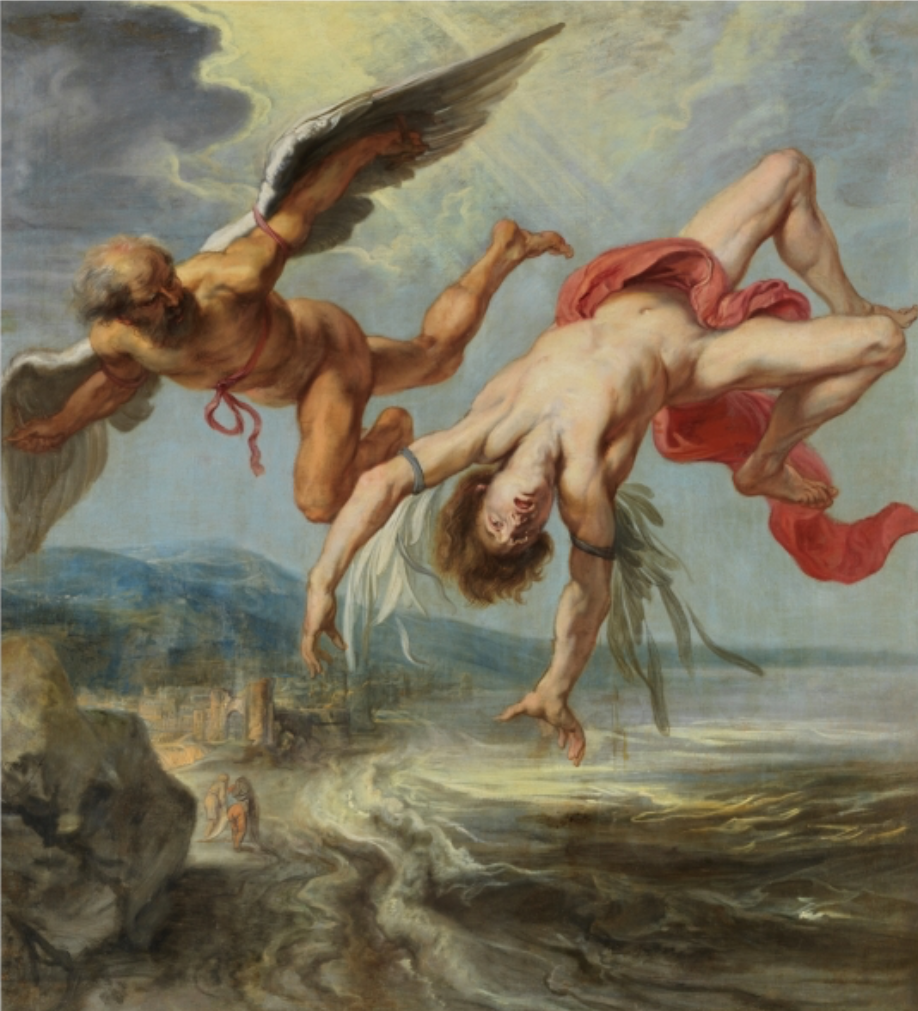
Living the Myth of Icarus
Icarus is one of the most infamous myths of human history––one of hubris and ambition, but also one of uninhibited elation and the invigoration of open-ended possibility. We cannot blame Icarus for trespassing his father’s warning, for if Icarus committed a sin, it was the sin of happiness, of wild joy, of delirious ecstasy. In a way, this is what the island of Ikaria offers its visitors: escape from the mundane, freedom from the manacles of an often lonely and career-obsessed culture. Ikaria is a place of endless sea and blue sky, a place where the horizon echoes infinite and uncertain, where the sun hangs ripe as an orange. One cannot help but to feel invigorated, inspired, anew. The overwhelming delirium of busy city streets and the fog of pollution gives way to serene clarity of mind and soul, to the contagion of new wonders and foreign splendor of the craggy cliffs and azure waters. One is infected with what is most ancient in this Blue Zone, because what is ancient is also what is most alive, most true: remembrance of
the expansiveness of the self, the belongingness of each of us into a loving community, the timelessness of joy as it rolls into the early morning hours.
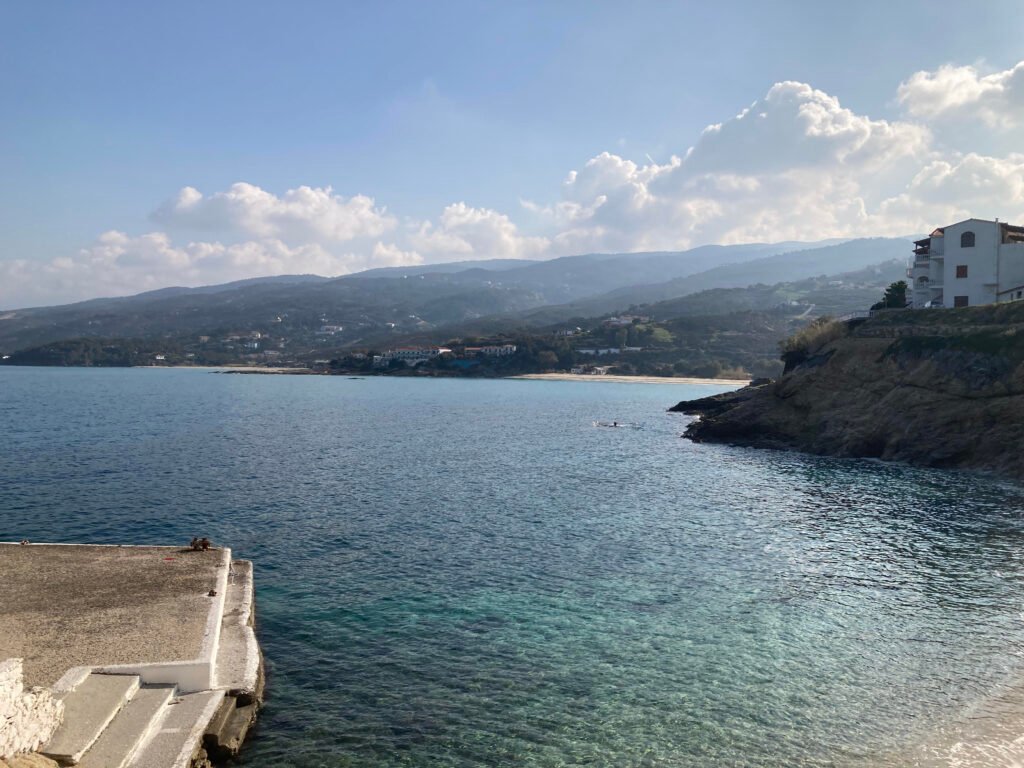
Although we may not be able to physically take flight, the sweet “life-drunkenness” Rumi spoke so often of is plentiful in this Blue Zone island. Ikarian wine is the modern islander’s engine toward the heavenly heights. In fact, many recent studies have revealed that there is a prime zone of tipsiness that opens the psychic doors and increases creativity. After a few glasses of wine, people are better creative problem solvers and more likely to have sudden creative insights. The “nectar of the gods” unbinds the restrictive logical system of thought in favor of a more primordial way of relating to the world: spontaneous, symbolic, and sensual. The ingestion of Ikarian wine gives the soul permission to slip through. Anecdotes that a sober mind might find unrelated to the conversation suddenly spring to the foreground, splashing the scene with new color and unexpected reverie. Buried memories, unapologetic laughter, sequestered tears, and ponderous questions suddenly shiver up the spine and release their expression without embarrassment. This is the gift of Ikarian wine, of wine-drunkenness. Our inherent capacity and gift of expression announces itself once again, a beautiful facet of humanness often stifled in early childhood. We suddenly find ourselves children again, existential again, curious again, inspired and excited by life again, connected to and rooted through other people again.
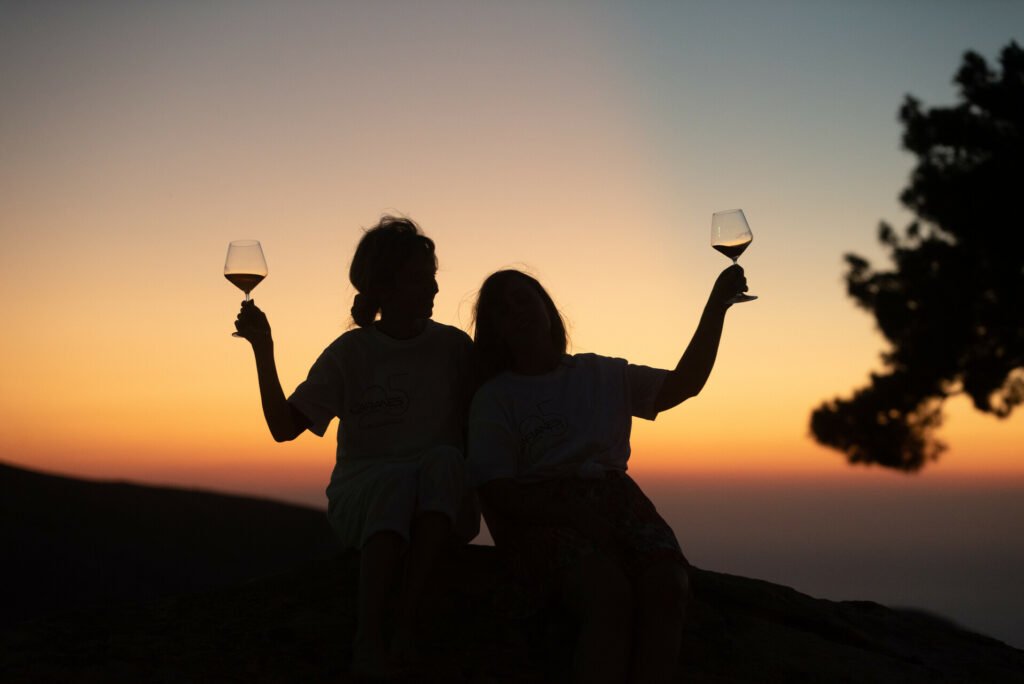
We, too, can experience the fearless bliss of Icarus. And, thankfully, our form of crashing to the sea will be nothing more than a hard-earned hangover cured by a few shots of espresso and bread from a local bakery.
How Myth Informs Blue Zone Beliefs
Let’s take a closer look at this myth and how its tenets are alive in the culture of Ikaria. Minos, competing against his brothers to secure title as king, prayed to Poseidon to send him a snow-white bull as a sign of his favor. Poseidon did, but with the stipulation that Minos sacrifice the bull to honor him. But Minos, at once unwilling to part with such beauty and coveting it as an object of his own possession, decided to keep the bull as a pretty pet. In retribution, Poseidon made Minos’ wife, Pasiphae, fall in love with the bull, and she gave birth to the Minotaur. This was the monstrous karma of the king who defied the natural order. His covetousness of beauty, his desire to contain and control a grace which was not his to keep, engendered misery in the form of the sacrifice of seven young Athenian men and seven young Athenian virgins to the minotaur every nine years. The degradation caused by such clinging desires are iterated today in the form of the mindless mining of precious natural resources, the mass production and mass slaughter of animals for cheap food, the destruction of the earth for temporary luxuries, careless tourism that degrades the very places it claims to appreciate.
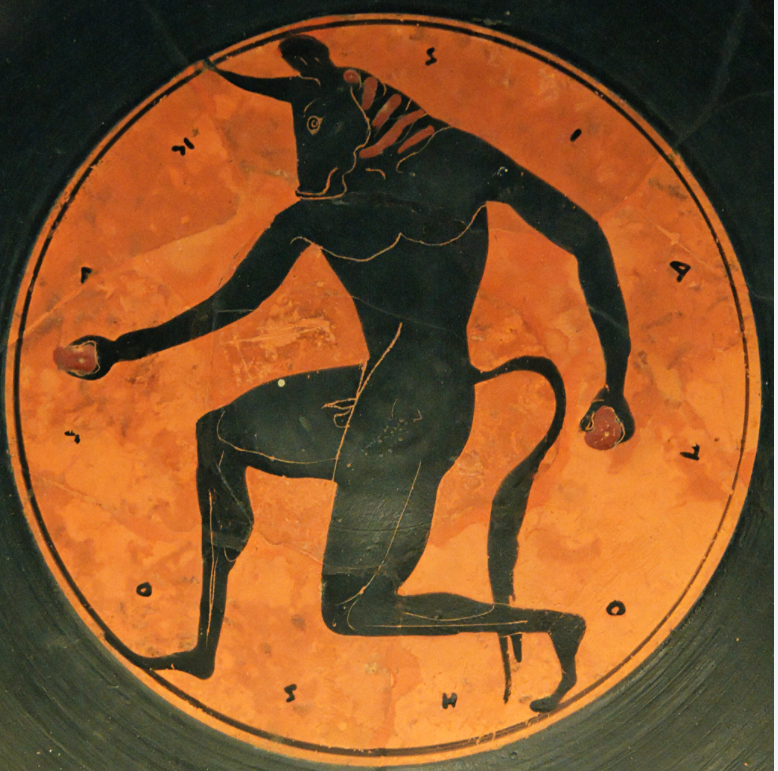
That is what makes the island of Ikaria so precious. The culture abides by the wisdom of its history. Like every Blue Zone, Ikaria values community, ancient and sustainable gastronomics, longevity through music and dancing and belonging. This is the reason why Odyssey of Wine Tours Inc. is a slow-tourism company. We recognize that lasting experiences and genuine reciprocity cannot be thoughtlessly taken, cannot be forced or coerced. The culture perpetuates the gifts of nature by taking care of nature and taking care of its people––through sustainable viticulture and healthy eating, by listening to stories late into the night as Ikarian wine is passed around the table, dancing into the early morning hours with the most energetic grandmas you’ll ever encounter, or sharing in the silence of awe during a beautiful sunset over the vineyards.
Visiting the Rock of Icarus
During our tours, you will have ample free time to unleash your curiosity and explore the island. The beach of Vaoni is a gorgeous location for an afternoon picnic, where the sapphire sea laps against the naturally-carved marble of the coastline. Grab some hummus, cheese and olives, fruit, and, of course, a bottle of Ikarian wine from Afianes Winery. Spend the afternoon loitering beneath the legendary sun that caused the son of Daedalus to come crashing into the Aegean Sea, the sun that gave this magical island its namesake.
